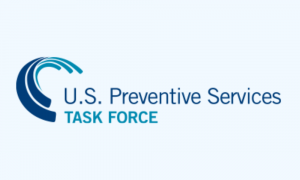
Fast facts about Herpes (Herpes Simplex Virus)
Herpes is a very common viral infection caused by herpes simplex virus (HSV). I can cause sores on the mouth or face or in the genital area. Herpes cannot be cured, but it can be treated.

The best way for couples to deal with herpes is to talk about it openly and make decisions together. So what’s the best way to start the conversation? There’s no one, single approach that works best for all people, but there are some guidelines that can help make this easier.
By disclosing your infection to your partner, you’re not only establishing a tone of trust—good for any healthy relationship—but you’re also taking an important step to reduce transmission. According to one study of discordant couples (where one partner had genital herpes and the other did not), there was a significant delay in transmission when the positive partner disclosed his or her infection. The average time for transmission was 60 days for those who didn’t disclose, compared to 270 days for those who did—regardless of other factors like condom use and frequency of sexual activity.
Makes sense logically—by being aware and taking precautions, you can help reduce your partner’s risk. But make sure that you keep your own health and risk in mind as well. So this conversation should be a two-way street, where you discuss your partner’s sexual health, and possible STIs, as well. (You might be surprised. This may be the point where you discover your partner has herpes too, and has been waiting for the moment to tell you.)
First and foremost, it’s important to keep in mind the relative importance of all this. If you were asked to describe yourself and highlight the most important aspects of you and your life, herpes wouldn’t make the list. It’s something you deal with, but it doesn’t define who you are as a person.
In the grand scheme of things, genital herpes is an inconvenience for most couples—nothing more than that. Keep this fact in mind and keep your language positive. Your attitude will also have a lot of influence on how the news is received. If you are positive and upbeat, it’s more likely your partner will adopt the same attitude. Try not to let the anticipation of a possible negative reaction affect the delivery of your message.
Remember too that this should not be treated as a “confession” or some kind of admission that you have done something wrong. It is what it is—a sexually transmitted infection. The bottom line is that sexual activity is a natural act that most everyone will have at some point in their lives. With sexual activity anywhere by anyone, there is some level of risk.
Before you talk about herpes and sexual health with a partner, make sure you are prepared to address any misinformation or misconceptions he or she might have. How well informed are you? Do you know the basic steps to reduce the risk to your partner? Do you know the facts about herpes? You want to feel confident and knowledgeable before you can explain the infection to someone else. Be prepared with information from ASHA and other reliable sources.
While there’s no specific timeline that dictates the best time to talk about herpes with a new partner, the discussion should ideally occur before any sexual activity has taken place. This doesn’t mean you have to launch into this on the first date necessarily. Once the relationship is heading in the direction of sexual activity, and you’ve both had the opportunity to get to know each other and establish a degree of trust, you should feel more confident sharing this personal information. And that is the point—this is personal information like any other, and needn’t be shared with everyone, but rather those you’ve come to know and trust.
Once you feel ready to open the discussion, you might want to look for logical ways to broach the subject. Sometimes public service announcements about sexual health or subjects closely related can open doors to discussions about herpes. Place, of course, is important too, as you’ll need privacy and uninterrupted time to devote your attention to this conversation. So even though a movie trailer seems to provide the perfect lead in, a crowded theater is probably not the best venue.
A few tips to consider:
Some may overreact. Some won’t bat an eye. Since many people have genital herpes or have heard about it, many people won’t be shocked or surprised. From the stories that we’ve heard at the Herpes Resource Center, most people will react well, and will appreciate your honesty and respect for the relationship and their wellbeing. While a negative reaction is possible, this doesn’t necessarily mean a bad ending. If that person values you as an individual and is interested in a relationship, something as minor as herpes shouldn’t stand in the way. If it does, then that person obviously wasn’t a good fit in the first place.
Whatever happens, try to be flexible. Give your partner time to respond, think about what you’ve said and absorb the information. Remember when you first found out? It took you time to adjust, too.
You don’t have to be overly concerned about protecting a partner’s feelings. And, you may want to reconsider a relationship where you have to do all the emotional work. A safer sex discussion might help you find out if this partner is a good candidate for your love and attention.
A few people are going to react negatively. It won’t matter what you say or how you say it. Remember, these people are the exception not the rule. If a partner decides not to pursue a relationship with you because you have herpes, it is best to know this now. There are many people who will be attracted to you for who you are–with or without herpes.
Most people react well. They appreciate your approach, honesty and maturity in addressing an important health issue. Remember to put herpes into perspective: it is an annoying, recurrent skin condition that is treatable and manageable–no more, no less.
In a new relationship there is always risk. Usually this risk is emotional. When a partner has herpes, there is additional risk that you could get it, too. You may have concerns about risking infection for a relationship that may not last. You’ll want to understand how to lower the risk for infection and ways to talk with your partner. Remember, if you have been sexually active you may already have been at risk for herpes.
You may have it and not know it. Because herpes can be spread without symptoms (asymptomatic shedding) it can be hard to know when a person became infected and who infected them. In fact, if you and your partner have had sex, it’s possible your partner got herpes from you.
In an intimate, sexual relationship with a person who has herpes, the risk of contracting the infection will never be zero. Some couples have sexual relationships for years without transmitting herpes just by avoiding sexual contact during outbreaks, using condoms regularly and using suppressive antiviral therapy to reduce outbreaks.
Couples deal successfully with herpes all the time. For many, it is a minor inconvenience. Since herpes does not pose a serious health risk, some couples choose not to use condoms in a long-term relationship. If you’re not sure about the relationship or you’re uncomfortable with the risk, consider delaying intimacy for a while. Get to know your partner better and give yourself time. Remember, all relationships face challenges, most far tougher than herpes. Good relationships stand or fall on far more important issues–including communication, respect and trust.

Herpes is a very common viral infection caused by herpes simplex virus (HSV). I can cause sores on the mouth or face or in the genital area. Herpes cannot be cured, but it can be treated.

The STI National Plan has now been amended to add genital herpes as a priority.

In this two-part episode of ASHA’s Sex+Health podcast, Terri Warren, RN, ANP explains many approaches to diagnosing herpes as well as strategies to effectively manage herpes in a relationship and deal with the emotional aspects of the diagnosis.

The U.S. Preventative Service Task Force (USPSTF) has advised against routine screening for herpes in adolescents, adults, and pregnant women.

Think you can tell that a rash or sore is a genital herpes infection just by looking at it? If you said “no,” you’re right. You can’t. And neither can your healthcare provider.

There are currently both preventive and therapeutic vaccines under development. While the primary focus is on HSV-2, the primary cause of genital infection, HSV-2 vaccines may also have benefits in preventing or treating HSV-1 infection.
ASHA believes that all people have the right to the information and services that will help them to have optimum sexual health. We envision a time when stigma is no longer associated with sexual health and our nation is united in its belief that sexuality is a normal, healthy, and positive aspect of human life.
ABOUT
GET INVOLVED
ASHA WEBSITES
GET HELP
© 2025 American Sexual Health Association